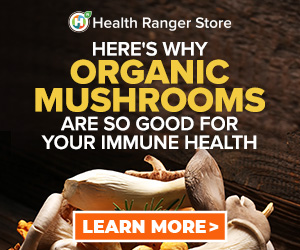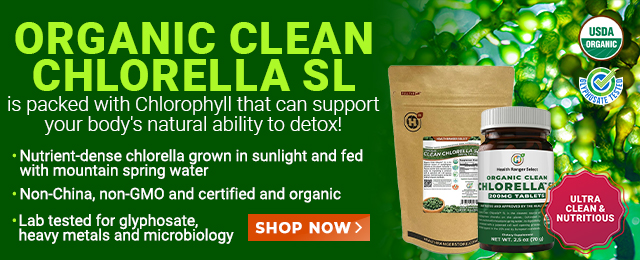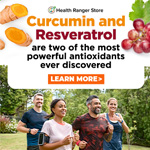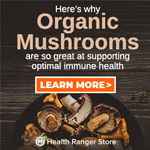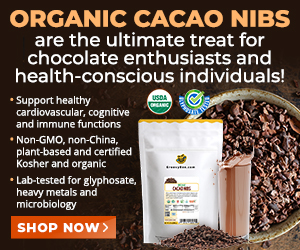
Vitamin E: a skin-boosting antioxidant that plays many roles in the body
Wednesday, April 16, 2014 by: Michael Ravensthorpe
Tags: vitamin e, antioxidants, free radicals
- Newly released JFK files reveal Pentagon's role in creating Lyme disease and covid in the same lab
- DEADLY DECEPTION: How COVID vaccines increased mortality rates and why authorities hid the truth
- CDC finally halts $11 billion COVID funding scam as health officials admit the ‘pandemic’ was a fraud
- The hidden dangers in your kitchen: How cooking methods impact diabetes, cancer and aging
- GAIN-OF-FUNCTION CAT-BIRD-FLU now on the rise as nearly a dozen cats in Colorado "test positive" for Bird Flu due to contaminated cat food
- Here are TEN all-natural ways to protect your garden without using harmful chemicals
- Trump's greatest betrayal so far: Accelerating Middle East wars, silencing dissent, and serving Zionist masters
- Why you should think twice before buying mainstream toothpaste formulas
- “Endgame: The Hidden Agenda 21” unveils a world of conspiracy and control
- Ginseng's hidden anti-aging power: How compound K is rewriting the rules of skincare
- ATTENTION PRESIDENT TRUMP: Please WITHDRAW your nomination of Dr. Susan Monarez for CDC Director as she is a VAX FANATIC and TOXIC JAB ZEALOT
- Was JFK's assassination orchestrated by a CIA double agent? New evidence points to James Angleton as the “architect”
- Home gardening for preppers: A beginner's guide to growing your own food
- Senate Democrats deny censorship industrial complex existed, defend government's role in silencing dissent
- Record honeybee deaths devastate U.S. agriculture, pesticides under scrutiny
- Paper or plastic? The environmental deception behind bag bans
- Scientists demand FDA withdraw mRNA COVID vaccines amid contamination and gene therapy concerns
- Analysis: The coming economic collapse, a mass uprising and Trump's three secret weapons to halt the growing revolt
- Newly released JFK files reveal Pentagon's role in creating Lyme disease and covid in the same lab
- Elon Musk: Aliens could be here on Earth RIGHT NOW
- Festive flavors: The sweet history, nutritional profile and health benefits of pecan pie
- Trump reverses course on Gaza plan, says “nobody is expelling Palestinians”
- Reclaim your health: How midlife exercise reverses years of inactivity
- Big Pharma's $8 Billion bribery scheme exposed: how doctors are pushed to prescribe junk science, not heal
- Boys are back in town: Trump’s patriotic alpha crew takes the wheel while toxic females ride in the backseat
- EPA advisor admits the agency is funneling billions to climate groups ahead of Trump’s return to White House
- Space war brewing? Russia threatens to destroy Starlink satellites
- Survival 101: Effective EMF blocking techniques
- A lack of integrity in Academia: Harvard professor found GUILTY of fraudulent research to promote CRT theory
- Mike Adams Sermon 66: God will DESTROY ISRAEL for its wickedness
- 5 Simple steps to boost your brainpower: How to strengthen executive function in a distracted world
- Rep. Nancy Mace introduces bill to ban biological males from female facilities on federal property
- Sugarcane extract superior to cholesterol-lowering drugs?
- WHO focusing more on policing speech about public health and implementing global surveillance systems
- Pilots report mysterious lights 'moving at extreme speeds' across Oregon skies
- Dr. Mike Yeadon releases 15-minute testimony - WATCH - about genocidal intent of COVID “vaccines”
- EPA advisor admits the agency is funneling billions to climate groups ahead of Trump’s return to White House
- The Health Ranger releases “Vaccine Zombie” song and music video, using AI-animated zombies for the music video
- California's social media censorship law struck down: A victory for free speech or a threat to online safety?
- Dr. Mike Yeadon releases 15-minute testimony - WATCH - about genocidal intent of COVID “vaccines”
- The pandemic as a tool for INDOCTRINATION: Understanding “The Indoctrinated Brain” by Dr. Michael Nehls
- Florida takes a stand: DeSantis proposes permanent ban on mRNA vaccine mandates
- Mike Adams releases country western hit single: Goin’ Back in Time is Comin’ Home
- Mike Adams releases music poetry sensation: A Child of God
- “Why we influenced the 2020 elections”: Facebook files reveal the coordinated effort to bury the Hunter Biden laptop story
- RFK Jr. clears key hurdle: Sen. Susan Collins backs controversial HHS nominee, signaling a new era for health policy
- Unpacking the Lies That We’ve Been Fed – new song and music video released by Mike Adams, the Health Ranger
- Mike Adams releases new song and music video: Nothing More Disgusting Than a Globalist
- Newly released JFK files reveal Pentagon's role in creating Lyme disease and covid in the same lab
- Congratulations to the FULLY UNVACCINATED as you resisted the COVID-19 PROPAGANDA MACHINE fueled by over $100 BILLION
- Michigan sheriff announces criminal investigation into 2020 election crimes, Dominion Voting Systems
- Israeli soldiers accused of even more torture and abuse in the West Bank
- Migrants are taking advantage of recent hurricanes to scam residents and loot their homes
- House Intelligence Committee calls for the ARREST and PROSECUTION of Dr. Anthony Fauci
- Red Cross issues warning to stop blood plasma donations from vaccinated people
- Scientists confirm: GENIUS brain function can be spontaneously unleashed in humans without any apparent cause
- EPA advisor admits the agency is funneling billions to climate groups ahead of Trump’s return to White House
- HYSSOP: What research reveals about the health benefits of this ancient holy herb
- Two containers with completed ballots fall out of truck in Florida
- Fully vaccinated about to see “tsunami” of illness and death, warns virologist
- Global leaders unite to clamp down on “misinformation” with UN-backed Cascais Declaration
- BREAKING: 2025 NDAA authorizes mandatory military draft of WOMEN across America… as Pentagon pursues global NUCLEAR war with both Russia and China at the same time
- Michael Yon warns of a ZIONIST TAKEOVER in Trump’s second administration
- BOMBSHELL: DNA testing kits are a SCAM to develop ethnic-specific bioweapons
- Ozempic and Wegovy weight loss drugs are injectable LIZARD VENOM PEPTIDES that may unleash a devastating wave of organ failure… side effects align with symptoms of SNAKE BITES
- Israeli soldiers accused of even more torture and abuse in the West Bank
- These 13 countries just signed an agreement to engineer a global FAMINE by destroying food supply
- NASA admits that climate change occurs because of changes in Earth’s solar orbit, and NOT because of SUVs and fossil fuels
- RFK Jr. clears key hurdle: Sen. Susan Collins backs controversial HHS nominee, signaling a new era for health policy
- Sermon 30: How Jesus reveals Caesar’s FAKE CURRENCY and FALSE AUTHORITY
- Coriander seeds: Ancient medicine backed by modern science
- Arizona officials claim Maricopa County needs 10-13 days to tabulate results of the election
Antioxidant properties
Like vitamins A and C, vitamin E is an important antioxidant whose primary role in the body is to scavenge free radicals. Free radicals (which are produced by air and water pollution, cigarette smoke, radiation and the consumption of processed foods) are rogue atoms or atomic groups that have lost at least one electron, forcing them to steal electrons from neighboring molecules in the hope of stabilizing themselves. Unsurprisingly, this causes havoc in the body. In fact, unchecked free radical activity is a leading cause of accelerated aging as well as degenerative diseases like cancer, arthritis, Alzheimer's disease and cataracts. Since vitamin E can neutralize these free radicals, it can help prevent these serious diseases while ensuring that our skin remains smooth and radiant (this is why vitamin E is added to so many skin care products).Boosts the cardiovascular system
Vitamin E plays large number of roles in our cardiovascular systems. Firstly, it aids red blood cell formation, ensuring that our tissues receive enough oxygen (which, in turn, guards us from anemia). Secondly, it thins the blood by widening our blood vessels, preventing our platelets from clumping together and creating clots. Thirdly, it prevents "bad" LDL cholesterol from being oxidized, which prevents clogged arteries. For these reasons, high levels of vitamin E in the body have been linked to reductions in non-fatal heart attacks and strokes in subjects. Vitamin E is also shown to reduce complications relating to diabetes.Maintains cell function
Like most other vitamins, especially the B vitamins, vitamin E helps maintain cell function. For example, vitamin E can aid cell differentiation -- a process of turning generic cells into the specific types of cells our bodies need, resulting in improved cell communication. Of course, proper cell communication is essential if we want our bodies to maintain proper immune function, heal damaged tissues and perform countless other tasks correctly. Additionally, vitamin E is associated with gene regulation, meaning it helps moderate the performance and production of certain enzymes, proteins and hormones in our bodies.How much vitamin E do we need?
According to official sources, the recommended daily intake of vitamin E is 15 milligrams (22.4 international units) for men and women above the age of 14. The highest safe levels of vitamin E for adults is 1,500 international units per day for natural (i.e. food-based) forms of vitamin E, and 1,000 international units per day for synthetic forms of vitamin E. Exceeding these levels might result in excessive bleeding stemming from the vitamin's anticoagulant effects.Vitamin E deficiencies are not something most of us need to worry about since a large number of foods contain it. That said, especially good sources of the vitamin include wheat germ oil, sunflower seeds, almonds, safflower oil, hazelnuts, peanuts, spinach and broccoli.
Sources for this article include:
http://lpi.oregonstate.edu/infocenter/skin/vitaminE/
http://ods.od.nih.gov/factsheets/VitaminE-QuickFacts/
http://www.nlm.nih.gov/medlineplus/ency/article/002406.htm
http://science.naturalnews.com/Vitamin_E.html
About the author:
Michael Ravensthorpe is an independent writer whose research interests include nutrition, alternative medicine, and bushcraft. He is the creator of the website, Spiritfoods, through which he promotes the world's healthiest foods.
Vitamin e at FETCH.news
Get independent news alerts on natural cures, food lab tests, cannabis medicine, science, robotics, drones, privacy and more.
More news on vitamin e
Take Action: Support Natural News by linking to this article from your website
Permalink to this article:
Embed article link: (copy HTML code below):
Reprinting this article:
Non-commercial use OK, cite NaturalNews.com with clickable link.
Follow Natural News on Facebook, Twitter, Google Plus, and Pinterest
Science News & Studies
Medicine News and Information
Food News & Studies
Health News & Studies
Herbs News & Information
Pollution News & Studies
Cancer News & Studies
Climate News & Studies
Survival News & Information
Gear News & Information
News covering technology, stocks, hackers, and more



"Big Tech and mainstream media are constantly trying to silence the independent voices that dare to bring you the truth about toxic food ingredients, dangerous medications and the failed, fraudulent science of the profit-driven medical establishment.
Email is one of the best ways to make sure you stay informed, without the censorship of the tech giants (Google, Apple, Facebook, Twitter, YouTube, etc.). Stay informed and you'll even likely learn information that may help save your own life."
–The Health Ranger, Mike Adams










